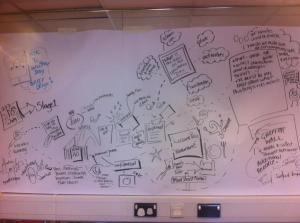Last week we shared with you a brief introduction to our Family Focus programme that runs in North West Kent. Below is a case study, we hope it will help you to understand more about the programme, but as always, if you have any questions, you can either leave a comment, or contact us direct.
The young person was referred to Family Focus due to unsettled and disruptive behaviours at primary school. The young person spent a lot of the time out of the classroom as there was disruption to the learning of peers. The young person’s Mum showed concern over the approaching transition into secondary school and did not hold a lot of hope for it to be a success.
When we approached the mum about Family Focus she was pleased that there would be support offered to her and her child as it was a new experience for her too. The young person was worried about secondary school and the expectations. The young person settled in fairly well but still showed signs of unsettled behaviours.
During Family Focus the young person was given targets that were relevant, highlighting areas that needed to be improved on. The targets were a mixture of input from school, Mum and the young person. There were also targets to work on at home that were discussed and decided by the young person and mum.
Each week during target reflection the young person gave an honest account, positive and negative, about how the week had gone. Support was given to discuss what went wrong allowing the young person to identify solutions that could be implemented for success the following week. The young person really listened to the group advice, peers and parents, using the best advice and putting it into practise.
During activity time, particular attention would be paid to chosen targets. If the group began to go off track, this would be addressed within the group. The young person responded really well to this and very quickly was able to learn and put in strategies that worked. The reports from the school were all very positive to the extent the young person that had been highlighted as vulnerable had now become a successful student. Mum was very surprised that she was not receiving the negative phone calls home that she was anticipating!
The young person enjoyed the group environment to practise skills to show that they could be done and to receive good comments. This boost gave the young person the confidence to help others, supporting them with their targets and encouraging them with their behaviour.
When it came to the end of the course, the young person was very supportive introducing the new students to the group and explaining how it works. The young person regularly pops in to visit and has continued to set targets when they feel they need to. The facilitators, Julie, Nikki and Lucy are very proud of the young person!
Quote from a parent
“It has been a pleasure to work with the team. I have enjoyed everything and it was nice to have people who understand to talk to. My child’s attitude and behaviour has improved so much, they have learnt the ability to work with people and how to control their temper. I have learnt how to help my child achieve their goals and to listen to them”.
Quote from a student
“I wish I could carry on with Family Focus, I think I have learnt how to hold things in like bad comments. My mum has learnt how to listen to me”.
Quote from school
“Joining Family Focus allowed the young person and mum to build a more positive relationship. It has helped to calm him and allow him to settle in to the new school”.


